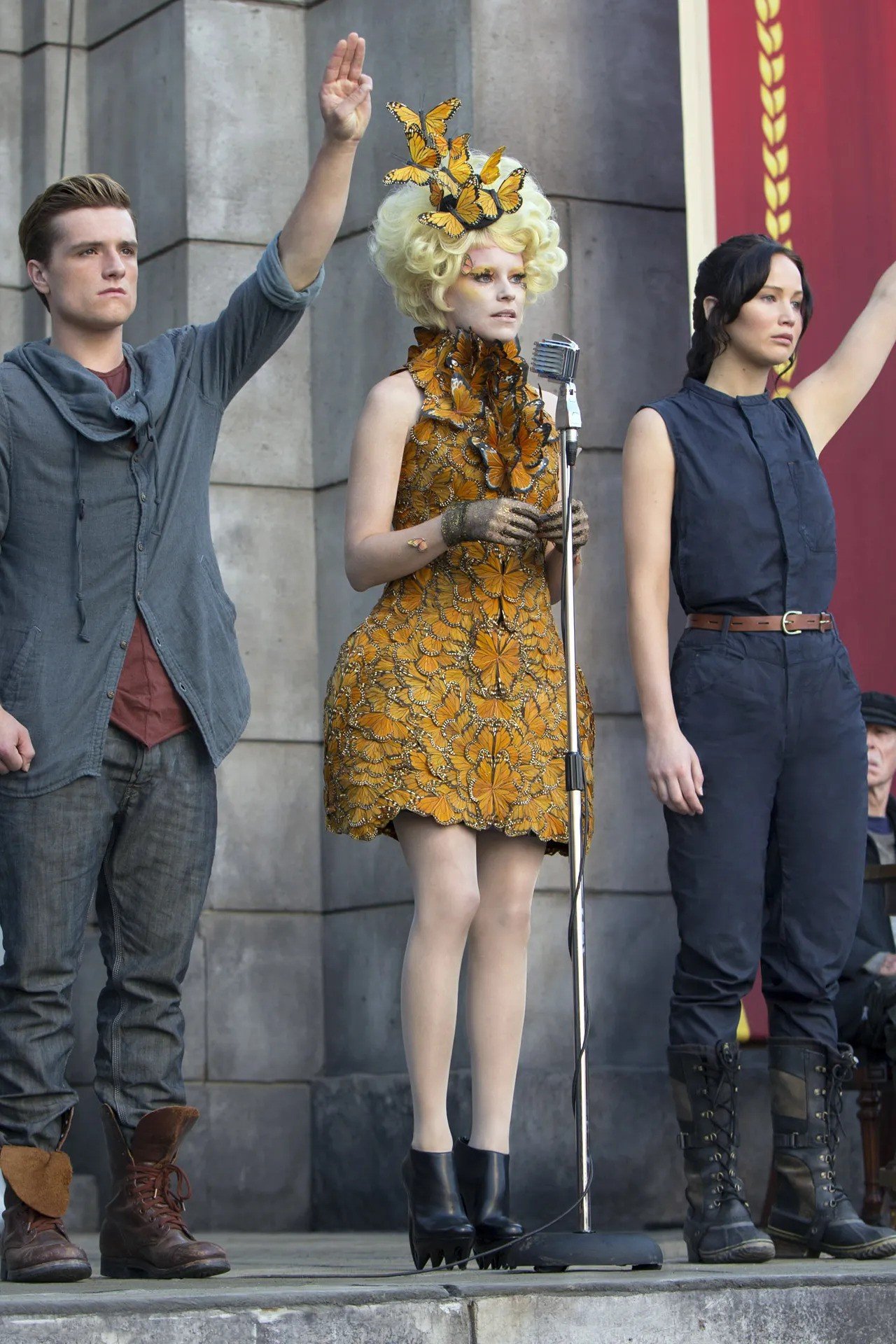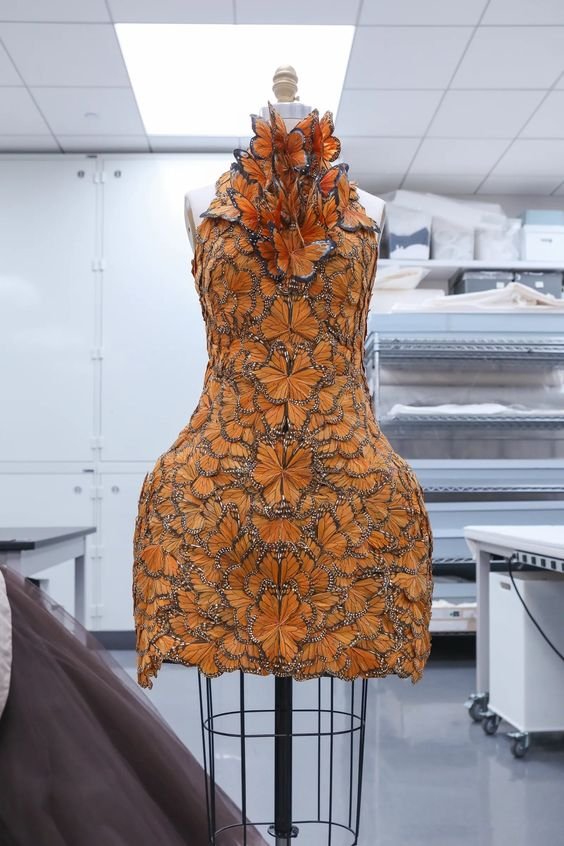Garden of Flop: This Year’s Met Gala Dress Code Had Every Chance to Be Sustainable… And Chose Not to Be!
Photo by The New York Times
A dress from the Hunger Games films, worn by the character Effie Trinket, beloved Capitol darling turned rebel, will be on display at the Met exhibit. It’s funny that one of the most widely recognized pieces in the exhibit is a symbol of a dystopian world that eerily resembles our own. This event and exhibit reawakened something in us; it isn’t quite “sleeping beauties,” but a rage evoked by displays of wealth and excess.
The Met Gala theme for 2024 was “Garden of Time.” As optimists, we had high hopes for the sustainable creativity and innovation that this theme might bring. With nature and time being the seeds planted at designers' drawing boards, we expected to see nature played with as both muse and material, the building blocks and inspiration of a garment, and time, to be a theme that might inspire longevity, timelessness, or a return to the past through vintage and archival looks. We expected to see a truly green carpet, made of vintage rugs or decorated in locally sourced greenery, garments made from mycelium, cactus, or any of the dozens of plant-based biomaterials being developed at this very moment. Maybe even a living creature or two! Sustainability and a love for the earth weren’t completely absent from the Met Gala, but the result was a missed opportunity to embrace the beauty and creativity that sustainability brings to fashion.
It might have been silly of us to have faith in an institution known for holding stolen garments hostage, suppressing the voices of protestors, and with no substantive history of caring about circularity, but we had hoped some designers might have the courage and imagination to tell a story about how nature, politics, and humanity fit into the timeline of fashion.
Ironically, the gala was sponsored by TikTok and eBay. TikTok, a platform our government is on the verge of banning for its lessened degree of censorship and obvious ability to aid in organizing, and eBay, which is promoting a rebranded version of their market where vintage and pre-loved fashion sellers can now sell for free. For two platforms that in some ways represent the future of community and fashion (collective and circular), the Met Gala couldn’t have landed any farther from these themes.
At the Oscars, celebrities wore pins that read #ArtistsForCeasefire to show their support for an immediate ceasefire in Gaza. Of course, this is the LEAST they could possibly do given their huge global platforms, but it was something. At the Met Gala, Palestine and support for Palestinians were nowhere to be seen. Not in the form of a tiny pin, not on the list of invitees, not in subliminal colors; nowhere. While celebrities smile for the camera and flaunt the delicate fabrics that adorn their insured bodies, just a few blocks away, protestors were arrested for calling for a permanent ceasefire in Gaza.
Fashion is political. As an art form, fashion engages with and reflects the realities of our world. The big-name designers who attend the Met, by and large, have no interest in being a part of this dialogue. Instead, they seem more focused on spectacle and glamor, ignoring or sidestepping the issues that matter the most.
Remember, it’s all eyes on Rafah, permanent ceasefire now, free Palestine, and see you at the guillotine!




